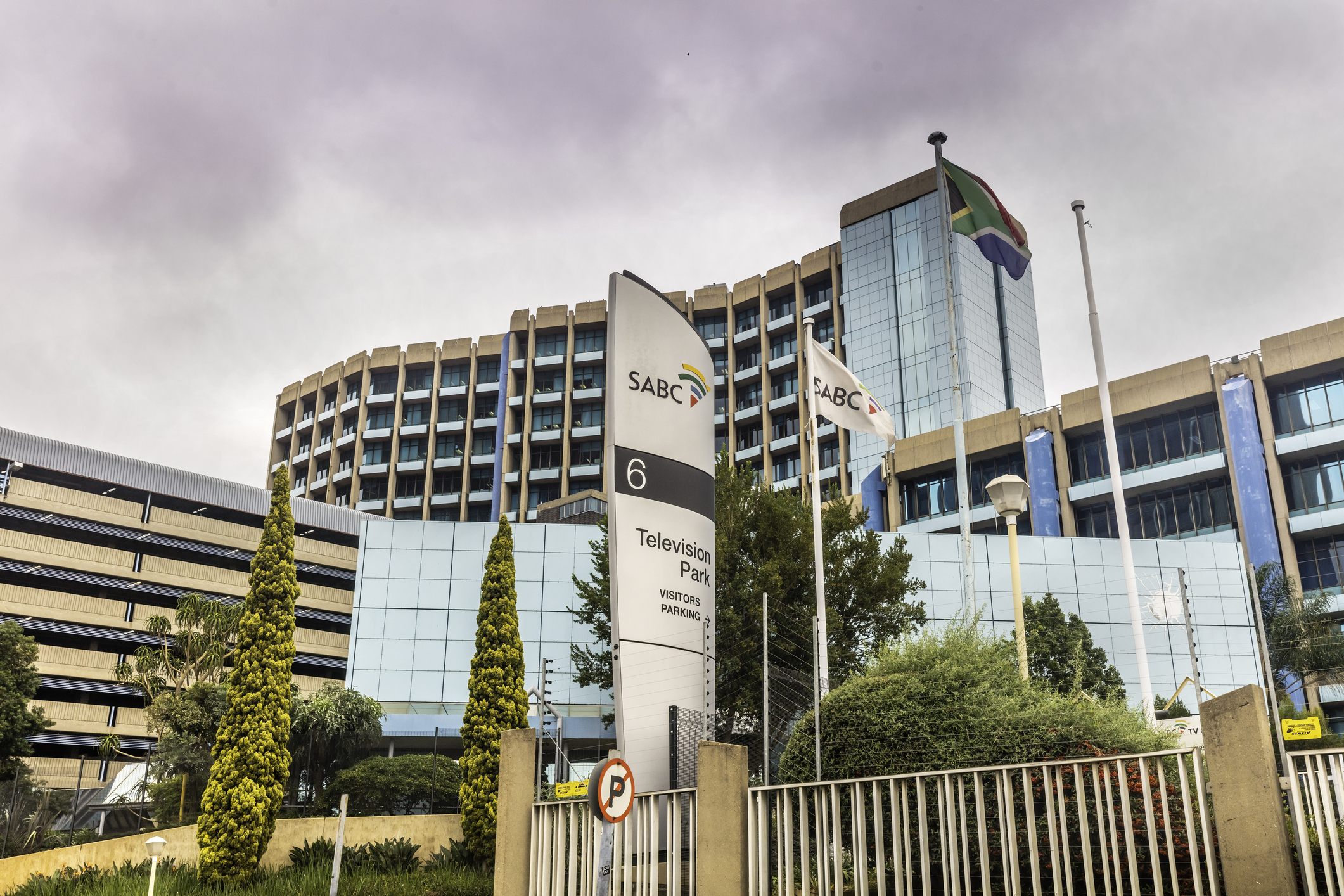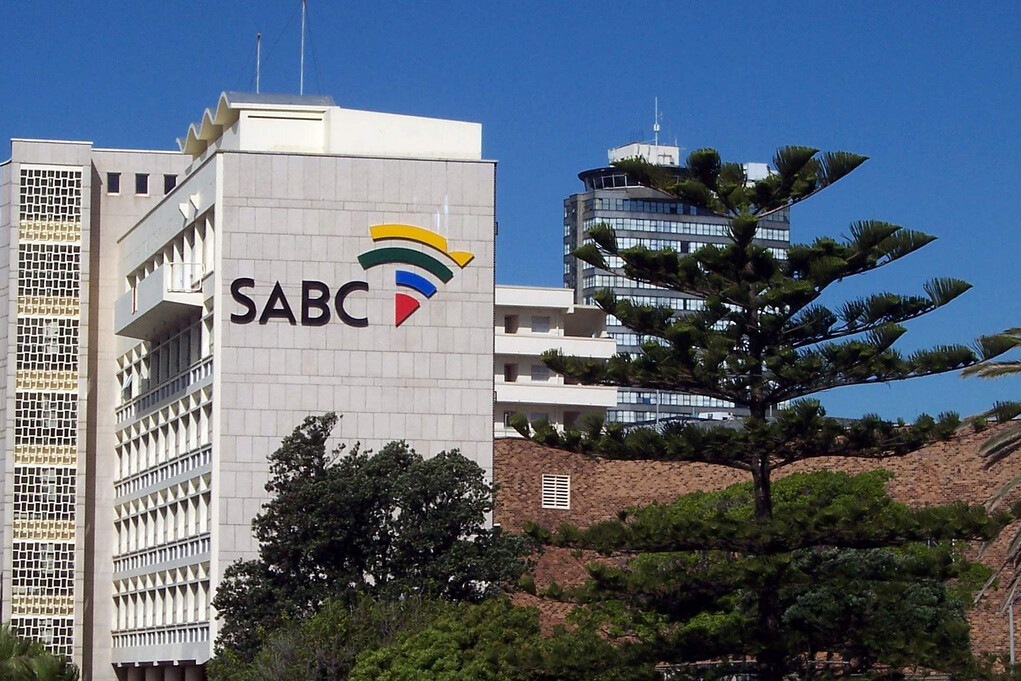Disciplinary action against SABC’s editor-in-chief is underway, at a time when the broadcaster faces allegations relating to its local election coverage. Meanwhile, management labels funding as the biggest challenge to the broadcaster’s public mandate.
A disciplinary process is currently underway against SABC’s General Executive for News and Current Affairs, Phathiswa Magopeni, after she was ‘reportedly charged by the public broadcaster for alleged negligence and bringing the public broadcaster into disrepute’. The charge relates to an episode of the investigative programme ‘Special Assignment’, which exposed alleged anti-competitive activities in the towing industry. Magopeni is accused of allowing the programme to be aired, despite a court order that stated it should not be broadcast. However, she claims the decision was made by someone else. The disciplinary hearing will begin on December 17th.
It takes place against a backdrop of claims made publicly by Transport Minister Fikile Mbalula – the African National Congress’ (ANC) head of elections – against the public broadcaster and specifically Magopeni, for being partly responsible for the party’s ‘poor performance’ in November’s local government elections. He claimed that this was because of SABC’s negative and minimal ANC airtime.
The timing of this attack has raised concerns. The South African National Editors’ Forum (SANEF) described the attack as baseless and shameful. William Bird, Director of Media Monitoring Africa, also spoke out about the ANC’s allegations against the SABC. Speaking to Newzroom Africa, he argued, “If they had a legitimate concern, the easy thing to do would be to go and report that at the time of the elections. To come now, and to do it in a public forum, and to go then specifically and approach the head of news and attack her … that looks like something a lot closer to interference and intimidation.”
Bird also commended a statement by SABC management which rejected Mbalula’s allegations and defended the broadcaster’s coverage of the November elections. Bird highlighted the importance of the SABC Board reasserting its independence through this statement, which he believes is “a really good thing for our democracy and for our media sector more broadly.”
MEDIA STATEMENT | THE PUBLIC BROADCASTER REJECTS THE SCAPEGOATING OF SABC NEWS
For more: https://t.co/3FD7yg4qVc pic.twitter.com/jCNFdJILAz
— SABC (@SABCPortal) November 25, 2021
Meanwhile, according to a report by News 24, Magopeni also claimed in a letter that she is being targeted after she “resisted attempts” by Chairperson of the SABC Board, Bongumusa Makhathini, and the Group Chief Executive Officer, Madoda Mxakwe, to “force her to carry an unscheduled interview with President Cyril Ramaphosa during the recent local government election campaign.”
Media and civil society groups fear that these recent incidents and allegations put SABC’s independence and editorial integrity at risk and are calling for Magopeni’s disciplinary action to take place ‘openly and transparently’. “Too much is at stake for this to happen behind closed doors,” said Anton Harber, Executive Director of Campaign for Free Expression (CFE). “Ms Magopeni has said that she is being hounded out because she has resisted political interference. We need the public to see if this is a return to the days when factional politics dominated the SABC and buried its public service mandate”.
SANEF wrote in a statement that an open hearing was essential to “dispel any perception that the process is a witch-hunt aimed at achieving political ends. … It is only fair that the SABC management demonstrates to all South Africans that their actions are motivated by nothing other than the need to ensure that the good name of the public broadcaster is not dragged through the mud.”
In a response to these concerns, the Board assured that “the matter is being processed fairly and in accordance with SABC policies.” It also affirmed that the grievances issued by Magopeni against Makhathini and Mxakwe relating to apparent editorial interference are being taken seriously, and that it could not comment further at this time.
Financial pressures
Alongside these challenges, the SABC is also experiencing financial constraints. The corporation maintains it is in a better financial position compared with previous years – largely due to implementing around 93% of its turnaround plan – and that it remains a top source of information, education, and entertainment for South Africans. It also plays an important role in social cohesion. But at the same time, the public broadcaster revealed last week that one of its biggest challenges to date is “acquiring sufficient funds to fulfil its public mandate.”
Kenneth Makatees, SABC’s Regional Operations Manager for the Western Cape, explained the reality of receiving minimal state subsidies and dealing with a high licence fee evasion rate. “The funding that comes from Government is actually a small percentage of what the SABC’s income is and as was pointed out, a very small percentage of people in South Africa actually pay their [TV] licences… What you are getting back, 18 radio stations, five television channels and social media platforms and the amount and the kind of work we are doing is unparalleled in this country, it has to [be] funded and the biggest proportion of funding comes from the commercial market.”
“In 2021, just 21% – only 2.2 million out of the 10.3 million SABC TV licence holders that the broadcaster is aware of – bothered to still pay their annual TV licence during the 2020/2021 financial year.” – News24
SABC also announced that there would be no salary increases for employees in the next three years “unless the corporation breaks even.” This measure, already implemented for this financial cycle, is calculated to save the public broadcaster close to 100 million rand for this financial year. They are expecting a saving of around 300 million rand across three years.
Discussions between the public broadcaster and the government regarding an ‘SABC TV licence fee amnesty’ have also begun. If successful, SABC’s request could mean that the licence fee debt that SABC has accumulated in recent years would be removed, which the public broadcaster hopes would also encourage more households to start paying their licence fees. According to News24, “In 2021, just 21% – only 2.2 million out of the 10.3 million SABC TV licence holders that the broadcaster is aware of – bothered to still pay their annual TV licence during the 2020/2021 financial year.”
The public broadcaster continues to seek other avenues of revenue generation, including more robust commercial funding. But in a recent roundtable session hosted by PMA, participants reiterated the fine balance between reliance on commercial revenue while still adhering to their core PSM mandates, including editorial independence and impartiality.
In order for public media organisations to be sustainable and trusted by the public, it is vital that they protect their financial and editorial independence. There needs to be guarantees that SABC’s disciplinary process against its GE of News is conducted fairly and transparently. We will continue to monitor its editorial and financial situation.
Header Image: South African Broadcast Corporation (SABC) Television Park in Auckland Park, Johannesburg. Credit: THEGIFT777/iStock
Related Posts
14th April 2021
SABC completes retrenchment process and transitions to new structure
SABC concluded its retrenchment process…
20th January 2021
SABC employees go on strike as retrenchment process resumes
Labour unions begin strike action and…

